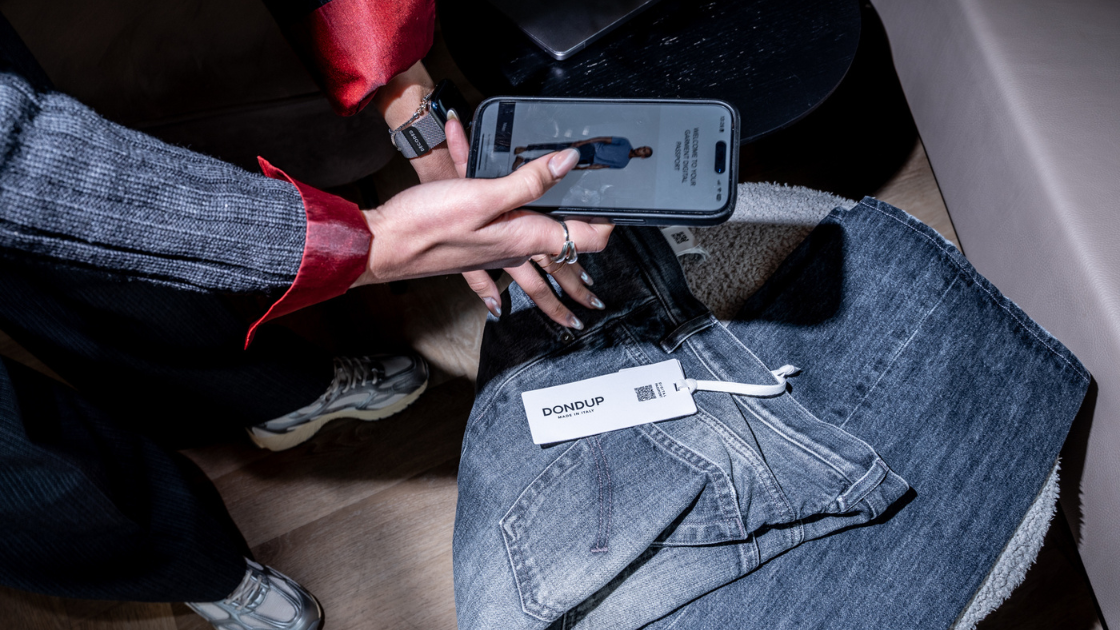The fashion and retail industries are under increasing pressure to adopt sustainable practices and provide consumers with clear, truthful information about their products. At the forefront of these efforts is the Green Claims Directive, a regulatory measure introduced by the European Commission to combat greenwashing and promote transparency. For businesses, compliance with this directive is not just a legal necessity but also an opportunity to build trust and showcase their commitment to sustainability. Tools like Renoon’s Digital Product Passport (DPP) integrations and supply chain mapping software can play a pivotal role in helping businesses meet these requirements.
Definition of the Green Claims Directive
The Green Claims Directive is a regulatory framework aimed at ensuring that environmental claims made by businesses are accurate, evidence-based, and verifiable. Proposed by the European Commission, this directive is part of the broader EU strategy to foster sustainable development and combat misleading sustainability claims, often referred to as greenwashing. The directive mandates that companies provide clear, documented proof for any green claims they make, whether related to a product’s environmental impact, production processes, or end-of-life recyclability.
Who Needs to Be Compliant?
The Green Claims Directive impacts all stakeholders across the fashion and textile supply chains, including:
- Retailers: Retailers are required to ensure that the green claims associated with the products they sell are substantiated and transparent.
- Suppliers: Suppliers must provide accurate documentation of their materials and processes, enabling downstream businesses to verify the authenticity of their claims.
- Manufacturers: Manufacturers play a critical role in providing detailed information about their production methods, sourcing, and environmental impact.
Compliance is not limited to large corporations; small and medium enterprises (SMEs) must also adhere to the directive, ensuring that all participants in the supply chain contribute to a transparent and sustainable fashion ecosystem.
How Should Retailers Be Compliant?
Retailers, as the final link between products and consumers, bear significant responsibility under the Green Claims Directive. They must:
- Verify that the sustainability claims made about their products are supported by reliable data.
- Ensure that marketing materials and labels provide clear, non-misleading information.
- Avoid penalties and reputational risks associated with non-compliance.
Compliance offers retailers several advantages. By aligning with the directive, retailers can enhance consumer trust, differentiate themselves in the marketplace, and align with the EU’s broader sustainability goals. Transparency in sustainability claims also reduces the risk of consumer backlash and potential legal consequences.
How Should Suppliers Be Compliant?
Suppliers form the backbone of the fashion and textile supply chains and play a crucial role in enabling compliance with the Green Claims Directive. They are responsible for:
- Providing detailed documentation of raw materials, sourcing practices, and production processes.
- Ensuring transparency in their operations, including emissions data, resource usage, and labor conditions.
- Collaborating with brands and retailers to facilitate accurate, verifiable green claims.
Supply chain mapping softwares, such as Renoon’s tools, can help suppliers meet these requirements by providing a centralized platform for managing and sharing critical compliance data. By embracing transparency, suppliers can build stronger partnerships with retailers and brands, fostering long-term trust and collaboration.
Timeline for Compliance
The European Commission has outlined a clear timeline for implementing the Green Claims Directive. Key milestones include:
- Adoption of the Directive: The directive was adopted as part of the EU’s Circular Economy Action Plan.
- Member State Implementation: EU member states are required to transpose the directive into national legislation within a specified timeframe.
- Business Compliance Deadline: Companies are given a grace period to align their operations and marketing practices with the new requirements.
While the exact deadlines may vary, businesses are encouraged to act proactively to ensure compliance well before the mandated dates. Staying ahead of the timeline not only minimizes risk but also allows companies to position themselves as sustainability leaders.
How to Comply with the Green Claims Directive
Achieving compliance with the Green Claims Directive involves a systematic approach. Here’s a step-by-step guide:
- Conduct a Sustainability Audit
- Evaluate your current practices, products, and marketing claims to identify areas that require improvement.
- Implement Transparency Tools
- Use supply chain mapping software, such as Renoon’s platform, to gather and manage data on product origins, production processes, and environmental impact.
- Verify Claims
- Ensure that all sustainability claims are backed by reliable, evidence-based data.
- Adopt Digital Product Passports (DPPs)
- Provide consumers with clear, accessible information about product lifecycle stages, from raw material sourcing to end-of-life recycling options. DPPs can be an effective tool to support transparency and the verification of sustainability claims, providing consumers with transparency information and serving as a container for data, also in compliance with other regulations.
- Stay Informed
- Regularly monitor updates to both EU green claims and country-based regulations and guidelines to ensure ongoing compliance.
Examples of Brands That Are Compliant
Several leading fashion and textile brands have already taken steps to align with the Green Claims Directive. These companies have embraced transparency and sustainability as core values, leveraging tools like Digital Product Passports to communicate their commitment to consumers. Examples include:
- Womsh Footwear: Known for its innovative materials, Womsh has backed up its products and materials claims by storing certifications and documents on the Renoon dashboard.
- Artknit Studios: A pioneer in ethical fashion, Artknit uses Digital Product Passports to share validated information about its products and supply chain.
- Dondup: As one of the biggest Italian denim brands, Dondup has adopted advanced compliance tools to ensure Made In Italy claims are evidence-based and proven.
These and other success stories demonstrate the tangible benefits of compliance, from enhanced consumer trust to improved market positioning.
Conclusion
The Green Claims Directive represents a significant step forward in promoting transparency and accountability within the fashion and retail industries. By mandating evidence-based sustainability claims, the directive aims to combat greenwashing and foster a culture of trust and integrity. For businesses, compliance is not just a regulatory obligation but an opportunity to lead the way in sustainable practices.
Renoon’s suite of tools, including supply chain mapping software and Digital Product Passports, provides a comprehensive solution for achieving compliance. By leveraging these tools, companies can streamline their efforts, meet regulatory requirements, and build stronger connections with consumers who value transparency and sustainability.
Ready to get started? Explore how Renoon can help your business comply with the Green Claims Directive and thrive in a sustainable future.








.png)
.png)


.png)
.png)


.png)
.png)

.png)

.png)
.png)
.png)


.png)
.png)
.jpg)
.png)






.png)


.png)
.png)













.png)
.png)
.png)

.png)
.png)
.png)
.png)
.png)


.png)
